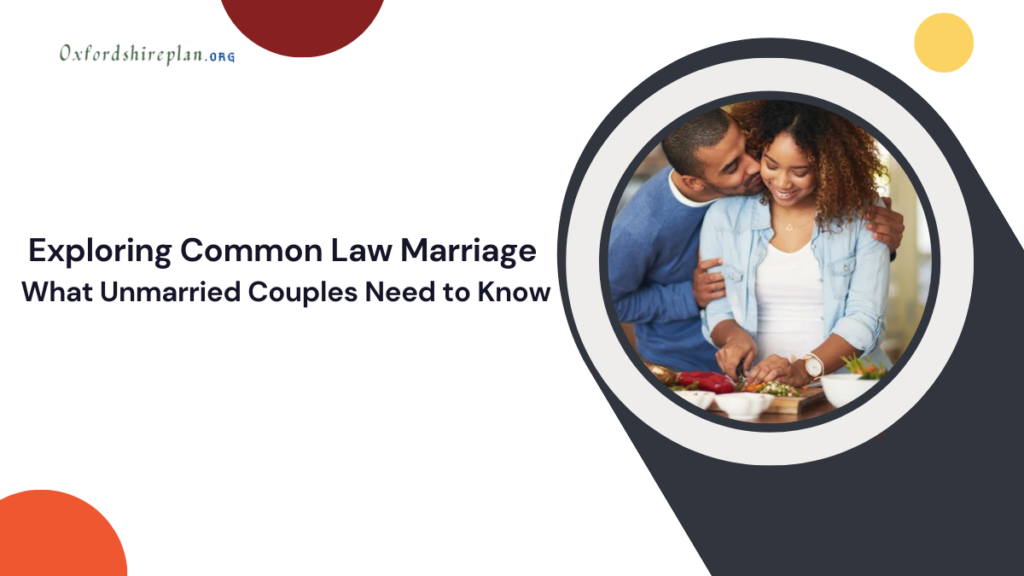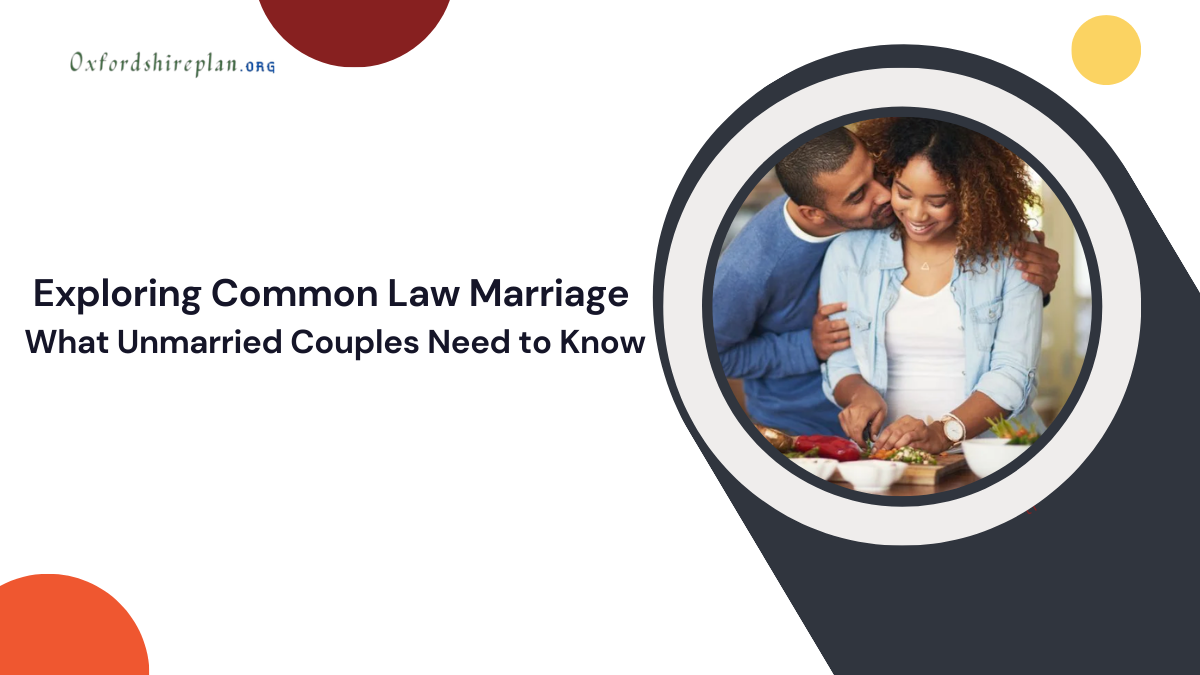Common law marriage involves a marriage-like relationship between two people who live together for an extended period without officially marrying or registering their partnership. Although common law partner is recognized in some parts of the world, it does not carry legal status in the UK. Let’s explore how this affects couples choosing to live together without formalizing their relationship.

Contents
What is Common Law Marriage?
Common law partner typically refers to a couple’s relationship without formal legal recognition through marriage or civil partnership. This arrangement is seen in:
- United States – Some states recognize common-law marriage, granting unmarried couples many of the same legal benefits as married ones.
- Canada and Australia – Recognized similarly, common-law partners may receive limited rights in areas like property or inheritance.
Is Common Law Marriage Recognized in the UK?
In the UK, even if a couple lives together for years, they do not receive the same legal rights and protections as married couples. This is often misunderstood, as many believe they have rights similar to a spouse when they do not. Here’s a look at the disparities:
| Rights & Protections | Married Couples | Common Law Partners |
|---|---|---|
| Inheritance Rights | Yes | No |
| Parental Rights | Yes | Limited |
| Pension Rights | Yes | Limited |
| Tax Benefits | Yes | No |
Scotland’s Approach
Scotland has slightly different rules than the rest of the UK. Since 2006, specific protections exist for cohabiting couples:
- Ownership of Household Goods: Items purchased together are jointly owned.
- Financial Compensation: Recognition of contributions like time taken off for child care.
- Estate Protections: Surviving partners may claim inheritance rights if a partner dies without a will.
To understand the specifics, it’s wise to consult a solicitor, as legal guidance varies across regions.
Key Implications for Unmarried Couples
Living together without marriage impacts couples in several ways:
- Inheritance Rights: Unmarried partners may not automatically inherit assets.
- Pension Rights: Limited access to partner’s pensions.
- Property Ownership: Couples often face challenges regarding shared property.
- Parental Rights: Only biological or legally recognized parents have full rights.
- Tax and Benefit Restrictions: No eligibility for spousal tax benefits.
Steps Cohabiting Couples Can Take to Protect Their Rights
Although common-law relationships lack the same protections as marriage, couples can take proactive steps to safeguard their rights and assets:
1. Establish a Cohabitation Agreement
A cohabitation agreement defines each partner’s rights, addressing issues like:
- Financial Responsibilities: Managing shared expenses.
- Property Ownership: Defining ownership shares of jointly held assets.
- Childcare Arrangements: Establishing child support and custody plans.
- Separation Terms: Outlining processes if the relationship ends.
This agreement is a practical way to ensure fair treatment if separation occurs, often providing protections similar to marriage in specific areas like asset division and child custody.
2. Create a Will
Without marriage or a civil partnership, inheritance laws do not apply to unmarried couples. Creating a will ensures assets are distributed according to your wishes:
- Asset Distribution: Specify how assets should be handled.
- Guardian Designation: Decide on guardianship for any children.
- Estate Management: Appoint an executor to manage your estate.
Having a will offers peace of mind for both partners and their families, helping to prevent potential conflicts and ensuring a legacy for loved ones.
Conclusion
While common law partner provides some rights in countries like the United States, it lacks recognition in the UK. Couples living together without marriage face challenges in inheritance, property rights, and financial benefits. However, they can take meaningful steps like creating cohabitation agreements and wills to safeguard their interests and protect themselves and their families.
Click here to learn more

I am a dedicated lifestyle and fashion enthusiast, always looking for the latest trends and timeless styles. With a flair for creativity and a passion for self-expression, I provide fresh insights and tips on elevating everyday living and personal style.
















